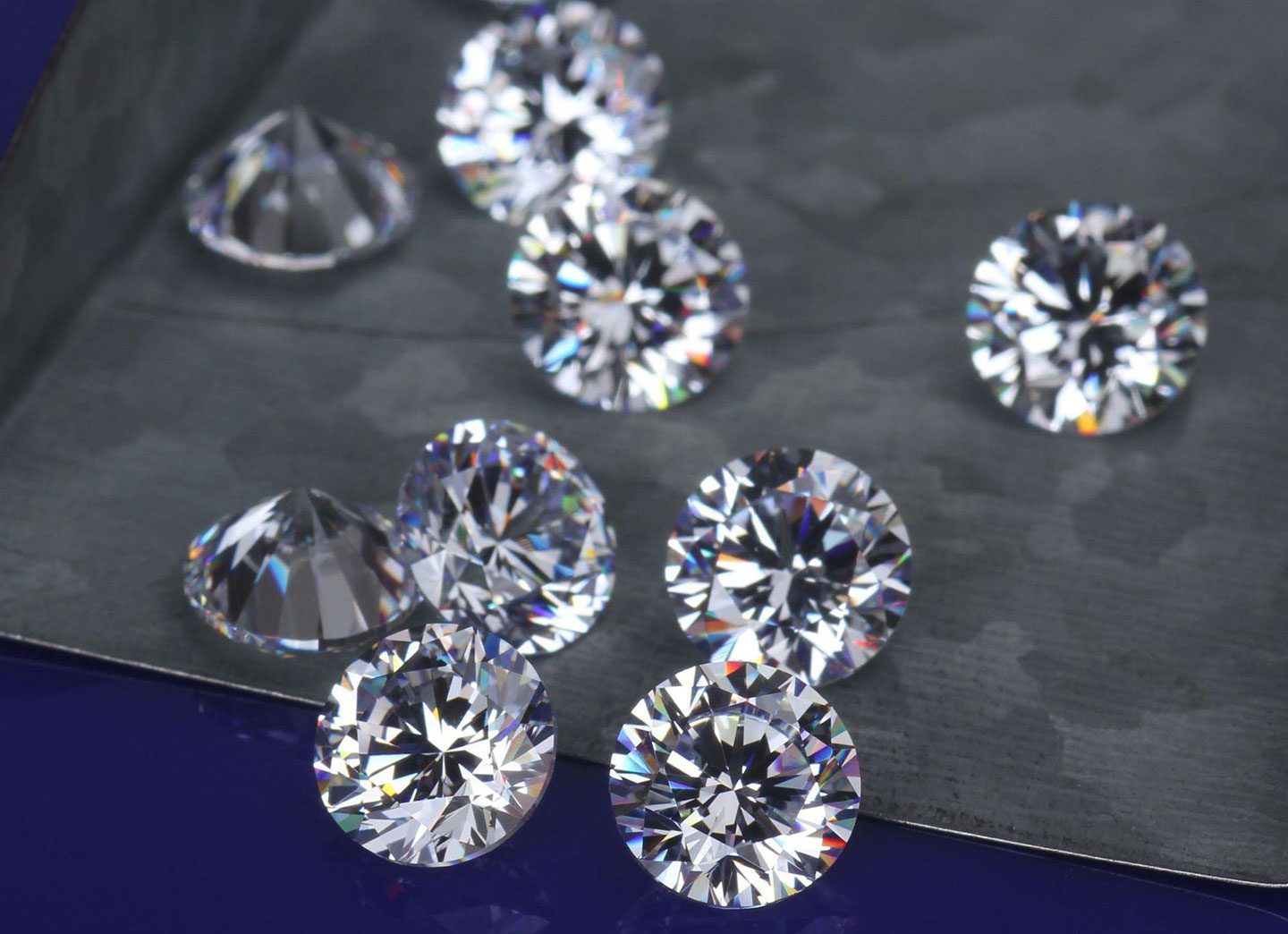Moissanite is a lab-created gemstone that has gained widespread attention due to its striking similarity to diamonds in appearance and physical properties. Below is a detailed introduction to its basic attributes, characteristics, differences from diamonds, application scenarios, and more:
Basic Properties
Chemical Composition: Moissanite, chemically known as silicon carbide (SiC), is extremely rare in its natural form. It was first discovered in a meteorite by French chemist Henri Moissan in 1893, hence the name.
Lab Creation: Nearly all moissanite available in the market today is lab-grown. It is cultivated through advanced crystal growth techniques such as high-temperature and high-pressure methods or chemical vapor deposition, resulting in physical properties identical to those of natural moissanite.
Core Characteristics
Exceptional Optical Properties
High Refractive Index: With a refractive index of approximately 2.65-2.69, which is higher than that of diamonds (2.42), moissanite exhibits more intense and brilliant fire (the colorful light refracted) than diamonds. It particularly displays rich rainbow-like sparkles under sunlight.
High Dispersion Value: Its dispersion value of 0.104 is much higher than that of diamonds (0.044), which is the key reason for its more dazzling fire.
Superior Physical Properties
High Hardness: Ranking 9.25 on the Mohs hardness scale, moissanite is second only to diamonds (which rank 10) and harder than rubies and sapphires (which rank 9). It is resistant to scratches in daily wear and highly durable.
Good Thermal Conductivity: Similar to diamonds, moissanite has good thermal conductivity, making it difficult to distinguish from diamonds using ordinary diamond testers (thermal conductivity meters).
Affordable Price: Compared to diamonds of the same size and quality, moissanite is much more affordable, typically costing only 1/10 to 1/20 of a diamond. This high cost-performance ratio makes it a popular choice for consumers who desire a "diamond-like appearance" on a budget.

Key Differences from Diamonds
|
Comparison Item |
Moissanite |
Diamond |
|
Composition |
Silicon carbide (SiC) |
Carbon (C) |
|
Origin |
Almost entirely lab-created |
Naturally formed or lab-grown |
|
Hardness |
9.25 (Mohs scale) |
10 (Mohs scale) |
|
Fire |
More intense, with obvious rainbow sparkles |
Softer, mainly white light |
|
Specific Gravity |
3.22 |
3.52 |
|
Electrical Conductivity |
Most are conductive |
Generally non-conductive (except blue diamonds) |
|
Price |
Lower (about 1/10-1/20 of diamonds) |
Higher (greatly affected by the 4C standards) |
Identification Methods: Professional institutions can distinguish them through specific gravity testing (moissanite is lighter), electrical conductivity testing (most moissanite is conductive), or microscopic observation (moissanite may have synthetic characteristics internally).
Application Scenarios
Jewelry: It is commonly used in making rings, necklaces, earrings, etc. Due to its diamond-like appearance and low price, it has become a popular choice for many people as daily wear or a diamond alternative.
Decorative Fields: Some crafts and watch inlays also use moissanite to enhance aesthetics while controlling costs.
Purchasing Notes
Certification: High-quality moissanite comes with professional certificates (such as those from GIA, IGI, etc.), marked as "synthetic silicon carbide" to avoid being sold as natural diamonds.
Quality Parameters: The quality of moissanite can refer to the "4C" standards of diamonds (color, clarity, cut, carat weight), but the evaluation system is slightly different. Focus on cut (affecting fire) and clarity (internal flaws).
Purpose Positioning: Moissanite is suitable for consumers seeking cost-effectiveness, daily wear, or fashion accessories. If considering collection or traditional "value preservation", diamonds (especially natural diamonds) remain the mainstream choice.
Moissanite has become a popular synthetic gemstone in the jewelry market due to its high cost-performance ratio and diamond-like appearance. However, it is essentially lab-created silicon carbide, so it is important to clarify your needs and positioning when purchasing.
#moissanite #moissanitejewelry #moissanitewatch #moissanitediamond

 Home
Home Gezfeel
Gezfeel May 27 2025
May 27 2025



 Address: Room 405, Building A, Qianhai Zhichuang Technology Industrial Park, No.60 Nanchang Road, Nanchang Community, Xixiang Street, Baoan District, Shenzhen, China
Address: Room 405, Building A, Qianhai Zhichuang Technology Industrial Park, No.60 Nanchang Road, Nanchang Community, Xixiang Street, Baoan District, Shenzhen, China

